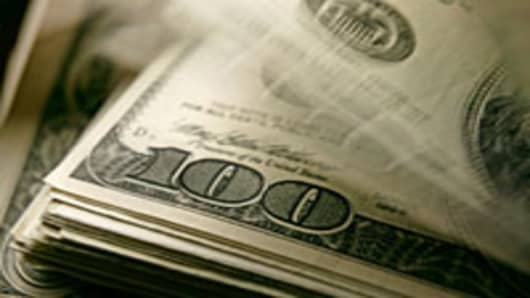If you enjoy inside baseball reporting about financial journalism, you'll love blogger Felix Salmon'sclever critique of an article in The Wall Street Journal about General Motors' recent attempts to pay down its debt.
Salmon's basic thesis is this: that "the leverage-is-good meme simply refuses to die"—even though we should know better by now, especially n the wake of the last financial crisis.
He makes some excellent points about the article.
And his critique does make you wonder about the broader prevailing ethos surrounding debt on Wall Street in general.
To wit: Do all former leverage junkies live in perpetual danger of relapse?
Salmon setups the argument, vis-à-vis General Motors : "What GM is doing is very simple. The main reason to carry debt is the tax advantages it gets, but GM already has all the tax advantages it will be able to use for the foreseeable future thanks to all the losses it made in previous years. Meanwhile, as GM vividly remembers, carrying a large debt load can be devastating in a cyclical downturn. So GM is trying to pay down its debt and carry as little of it as possible."
And from there, he deconstructs the article in The Journal—which seems to question the wisdom of GM's actions.
A few examples:
Wall Street Journal: "GM, like its Detroit rivals, had long carried a large debt load to help finance the business through the industry’s periodic downturns."
Felix Salmon: "This makes no sense. A large debt load is a bad thing, not a good thing, in a periodic downturn. If a car company loses money in any given year, it has to borrow that money. But borrowing money is much easier and much cheaper if you have a small debt load than if you have a large debt load"
Wall Street Journal: "Anticipating GM may again borrow at least some money, Barclays Capital and Goldman Sachs on Tuesday began quoting prices for credit-default swaps for GM debt, a way for investors to insure against losses in any bonds GM may issue."
Felix Salmon: "Does Terlep really think that investors are going to buy protection now against bonds which “GM may issue” some time in the future? Of course not: they’re buying protection now against bonds which are outstanding now. But more to the point, quoting CDS prices on GM in no way means that Barclays and Goldman are “anticipating GM may again borrow at least some money.” Indeed, a case can be made that the opposite is the case: if GM really is going to pay its debt down to essentially nothing, then a great way of getting free money is to write protection on GM debt now, and then just cash your insurance premiums for the next 3 or 5 years. It’s certainly a lot cheaper than buying outstanding bonds."
Perhaps the scarier premise would be this: The Wall Street Journal article is perfectly congruent with mainstream opinion.
___________________________________________________
Questions? Comments? Email us atNetNet@cnbc.com
Follow NetNet on Twitter @ twitter.com/CNBCnetnet
Facebook us @ www.facebook.com/NetNetCNBC


